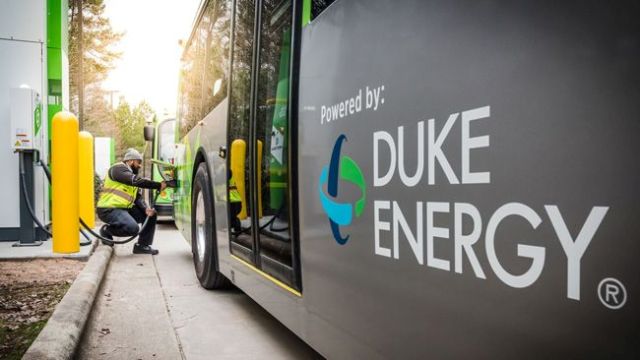Duke Energy, a major U.S. utility company, has revealed plans to decommission energy storage batteries manufactured by Chinese company CATL at one of the nation’s largest Marine Corps bases.
This is in response to mounting pressure from Congress and amid escalating concerns over cybersecurity threats.
Additionally, Duke Energy will phase out CATL products from its civilian projects, Reuters news report said.
The decision follows recent warnings from top U.S. officials about cyberattacks targeting critical U.S. infrastructure, particularly the power grid, allegedly orchestrated by hackers linked to the Chinese government.
Duke Energy had temporarily disconnected industrial-scale CATL storage batteries from a project at Marine Corps base Camp Lejeune in December. Lawmakers and experts raised concerns about CATL’s close ties to the Chinese Communist Party. The permanent shutdown of these batteries, occurring less than a year after their installation, highlights the broader impact of strategic competition between the U.S. and China on businesses from both countries.
Duke Energy emphasized its collaboration with policymakers and the Department of the Navy in deciding to decommission the CATL batteries at Camp Lejeune, opting to replace them with batteries from domestic or allied nation suppliers. The company stated its commitment to transitioning away from specifying CATL batteries by 2027, asserting support for a robust American supply chain.
In an effort to address congressional concerns regarding potential network vulnerabilities, Duke Energy executives, including its chief security and information officer, engaged in discussions with the House of Representatives’ select committee on China. While expressing confidence in the security of CATL batteries, the executives acknowledged congressional apprehensions.
Though Duke Energy did not disclose the impact on other projects considering CATL batteries, the decision signals a significant shift in its procurement strategy. Lawmakers, including Republican chairman Mike Gallagher and Senator Marco Rubio, welcomed Duke Energy’s move to phase out CATL products entirely from its supply chain.
CATL, a leading global provider of energy storage solutions, has yet to respond to requests for comment. The company’s battery energy storage systems have been planned for deployment in various commercial projects across the U.S., raising concerns about potential cybersecurity risks associated with their communication systems.
As the U.S. endeavors to reduce reliance on Chinese-manufactured batteries, industry experts warn that such efforts could severely limit supply, hindering the deployment of stationary storage systems and electric vehicles necessary to meet decarbonization goals. Legislation in the annual defense spending bill further underscores efforts to restrict the procurement of batteries from CATL and other prominent Chinese manufacturers by the Defense Department starting in 2027.

